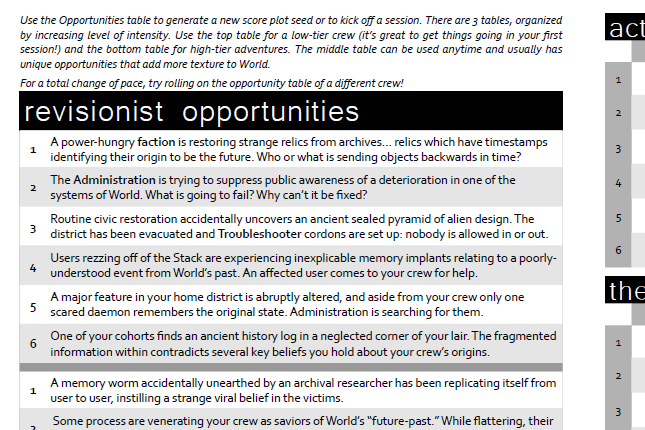Only recently bought the game, but I'm already putting out feelers, looking for an interested group.
1. How do you determine the chaos level? Is it based on the region's Data Structure (Stable/Chaotic) bar, or is it something else?
2. Are rules for Conspiracy, Moderators, Revisionists still in the works?
3. I'm trying to wrap my head around how MEM is swapped out. Is standard gear like having an ethereal catalogue or inventory and taking the time and MEM slots to download an item make it substantial? If that's the case, I'm guessing the time or opportunities are too prohibitive to reliably swap out during a Score, hence the restriction.




